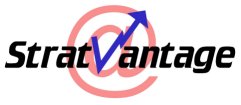|
|
 |
|


Be on the wave or under it™
The News – 04/30/02
|
In this Issue:
|
Recommended Reading
|
|
|
I realize this is the
only newsletter you’ll ever need, but if you want more
in-depth detail, check out:
Stan Hustad’s The Coaching Connection
|
Bits & Pieces II
(The Broadband Content Wars series will continue
in a future SNS)
Here are some more short takes on recent news of note.
- CyberCrime Stats Available: The latest
CSI/FBI Computer Crime and Security Survey (quoted in a previous
SNS) is out and available to the public. Some of the more
interesting results:
- Twenty-five percent of those acknowledging attacks reported
from two to five incidents.
- Thirty-nine percent reported ten or more incidents.
- Seventy percent of those attacked reported vandalism.
- Fifty-five percent reported denial of service.
- Twelve percent reported theft of transaction information.
- Six percent reported financial fraud.
- Turnabout Is Fair Play: Many of the popular
music file-swapping programs have built in “spyware” or “adware.”
These tag-along programs can report on user behavior or pop
up annoying ads. The file-swapping services, such as Kazaa,
Grokster, iMesh, and Audiogalaxy, depend on the advertising
revenue from the obnoxious adware to make ends meet.
Well now a hacker named “Dr. Damn” has turned the tables on
these companies, who make it easy to destroy the revenue streams
of music publishers and artists, by releasing versions of
their programs with the spyware and adware stripped out. Dr.
Damn is not alone. Several other hackers are providing so-called
clean clients for the major file-swapping services. In a tremendous
case of the pot calling the kettle black, the services are
complaining that their intellectual property is being stolen.
Those who live by the sword, die by the sword.
C|Net
- Airport Adds Bluetooth: The Minneapolis-St.
Paul airport has added Bluetooth hotspots to its wireless
options. As previously
reported in SNS, the airport already provides 802.11b (Wi-Fi)
service on many of its concourses. Now cell phones and PDAs
with Bluetooth capabilities can surf the Internet as well.
CityBusiness
- Biometric Passport Bill Passes Senate:
A bill that passed the Senate recently calls for the issuance
of travel documents that include biometric identifiers. This
will result in the installation of equipment to read the new
documents at all US points of entry by October 2003. The bill
passage caused the stock of local Minneapolis firm Visionics
(covered in a previous
SNS), which makes such equipment, to jump 10 percent. We’re
just that much closer to a national identity card and biometric
database. Not that that’s necessarily a good thing.
CityBusiness
- European 3G Build-Out To Be Costly:
European wireless operators have already mortgaged their future
by bidding a massive $105 billion on 3G wireless license fees.
Now Visiongain predicts that actually building the networks
will cost a fantastic $120 billion. Because of this huge projected
capital expense, these operators are intensely interested
in network-sharing, something that has started in the US as
well, with AT&T and Cingular sharing
the building of 3,000 miles of highway-hugging GPRS network
in the West and Midwest.
Visiongain
- Insecure eCommerce: It seems that
PayPal, the popular online payment service, has a bit of a
problem with the way it helps sell electronic goods. The cut-and-paste
code provided to merchants by PayPal for sending transaction
data to the payment service includes the URL of the document
or software to be purchased. Enterprising miscreants needed
to simply copy the link into their browsers to bypass the
bothersome task of actually paying for the goods.
This trick works for hard goods as well, allowing perps to
name their own price for products sold on sites that use PayPal’s
Web Accept service. Noted security expert Bruce Schneier,
chief technology officer for Counterpane Internet Security,
compared such attacks to going into a grocery store and switching
price stickers. “If a merchant is dumb enough to take their
customer's word on the price, without checking, that's not
PayPal's fault,” Schneier said. Uncharacteristically, Schneier
misses the point. Offering an insecure ordering and payment
system to more than 3 million business customers is PayPal’s
fault.
Wired
- Wireless Bar Advertising is the Thing:
Right here in my back yard is a company called SurfThing that
offers free Web usage on wireless terminals at bars, restaurants
and cafes. Currently there are 62 SurfThings available in 30 Twin Cities
bars, and the company has partnered with AT&T Broadband
for the Internet connectivity. There’s quite a large potential
market for such a service: Of about 1.8 million bars and restaurants
in the nation, perhaps 4,000 have Net-linked machines. The
public Internet terminal phenomenon is more well-developed
elsewhere in the world, with a total of 480,000 electronic
kiosks in use worldwide.
SurfThing terminals are all-in-one desktop PCs with flat-panel
screens and high-speed wireless connections. The surfing
is free; SurfThing’s revenue comes from ads that cover about
a quarter of the screen. When the devices are inactive for
three minutes, ads cover the whole screen and are visible
from across the room. The company says it’s close to breaking
even after two years of operation. So far there’s no indication
SurfThing will broaden its offering to accommodate those with
their own wireless laptops.
Kiosk Magazine
- The Attack of the Ads: Online advertising
may soon go too far. Many may assert that they already have
gone too far, what with pop-up, pop-over, pop-under, and other
sneaky and annoying techniques. Well, folks, it’s going to
get worse. United Virtualities, an online ad technology company,
has developed a product that will allow advertisers to automatically
change the appearance of Web browsers, including the gray
bits at the top that contain Back, Home, and Refresh (Reload)
functions.
Weather.com is testing the new product, called Ooqa Ooqa,
that transforms browser toolbars into an image of a setting
sun, with the Weather.com logo appearing behind the toolbar
icons. The "home" icon would become a "Weather
Channel" icon, taking users to Weather.com's main page,
and sponsored links to other Web sites would replace Internet
Explorer tools like “edit.” The kicker is: Users don't have
to download any software to have their browser look and feel
changed. Web usability expert Jakob Nielsen speaks for those
of us who are alarmed at this possibility: “I think it steps
over the line of what's permissible. Changing software is
not permissible. The software is mine."
United Virtualities claims that users will always have the
option to turn off Ooqa Ooqa (stupid name alert), and even
to indicate they don’t want to have it enabled when next they
visit a Web site. Advertisers, though, will be able to decide
if the browser modifications are permanent or just for when
the user browses a particular site. Sorry, I think this is
the stupidest advertising idea since Pizza Hut considered
advertising
on the moon.
USA
Today
-
Fast, Public Wireless Hotspots: Japan’s
NTT Communications will officially launch the first public
commercial wireless LAN that is compatible with both 802.11a
and 802.11b (Wi-Fi) in May. The company has been running
public wireless LAN access trials, called Hi-Fibe, in Tokyo since last July and said its
Hotspot service will offer speeds of up to 36 Mbps for 802.11a
and 11 Mbps for 802.11b.
The Hotspot service will initially encompass 200 locations,
expanding to 1,000 by the end of the year. NTT said that
802.11a access will be limited initially, but will expand
to all Hotspot locations by this summer. Hotspot fees will
include a 1,500 yen ($11.73) application charge and 1,600
yen ($12.51) per month for access. The service represents
the largest public rollout of Wi-Fi’s faster brother, 802.11a.
802.11
Planet
-
Google Denies Service to Some Users:
Some Google users are seeing terms of service violation notices
rather than search results when trying to use the popular
Web search engine. “We are not accusing you personally of
having violated our Terms of Service,” say the notices. “You
are most likely an innocent victim of someone else's bad behavior.
We're really sorry to have had to take this action.”
The bad behavior Google is trying to protect itself against
is automated search requests, which unscrupulous marketers
use to try to manipulate search rankings. These searches can
use substantial system resources and have been prohibited
by Google for years. Google has taken the extraordinary step,
however, of prohibiting innocent users of an offending ISP
from using the service because of abuse by a single subscriber.
ZDNet
-
Nanotech Hyperbole:
James Von Ehr II, founder of nanotechnology company Zyvex,
recently echoed venture capitalist John Doerr’s famous words
from a few years ago about the Internet, saying that nanotechnology
“will be the greatest wealth-generating event in history …
but not in the next five years.” You may remember an embarrassed
Doerr later apologized for his statement after the Internet
bubble burst. Von Ehr at least qualifies his pronouncement
However, it’s hard to argue that nanotech is the coming thing.
Already carbon nanotubes (described in a previous
SNS) sell for around $200,000 a pound. And many applications
of nanotech have a science fiction air about them. For example,
at a recent speech in Chicago, Von Ehr described a respirocyte,
a tiny machine that stores oxygen under pressure inside your
body (like a little scuba tank the size of an ant’s tooth).
With such a device, or rather, with thousands or millions
of such devices, you could hold your breath for several hours.
Think how that would revolutionize the underwater salvage
industry, among others.
Von Ehr’s company today is developing machines that can mass
produce MEMS (Microelectromechanical systems), tiny machines
created in many cases by directly manipulating molecules and
atoms.
Time will tell if Von Ehr will need to eat his words like
Doerr did, but it’s certain that we all will feel the effects
of advances in nanotechnology within our lifetimes.
ePrairie
Shameless Self-Promotion Dept.: CTOMentor
has just released a new wireless white paper, the first in The
Wireless Future series: You Can Take It With You: Business
Applications of Personal Wireless Devices. This first paper
in the series is free; others that will be available for a nominal
fee will include:
- Islands Make the Net: Wireless Networking and
the Evolving Mesh
- Taking Your Business On the Road: The Car As
Wireless Office
- Standards, Standards Everywhere: A Business
Guide to Wireless Standards
- M-Commerce: Are We There Yet?
- Wherever You Go, There You Are: Mobile Location-Based
Wireless Services
- The Wireless Last Mile: Fixed Wireless Broadband
Services
- Beyond Keyboards, Beyond Wires: Voice Activated
Wireless Services
- Information, Entertainment, and Access At Your
Fingertips: Interactive Wireless Information Services
These white papers will be released over the coming months. To be
notified when a new white paper is released, send an email to
or check www.CTOMentor.com/wireless/.
You also may want to check out the article I wrote on Instant Messaging
in the latest issue of the TaylorHarkins Insights to Action newsletter.
Return to Mike’s
Take
|
|
Copyright © 2000-2008, StratVantage Consulting, LLC. All rights
reserved.
Please send all comments to  .
.
|
|
|
|
|

Looking to light up your office, your business, or your city?
The WiMAX Guys™ can help you easily provide secure wireless Internet to your customers.
The WiMAX Guys specialize in designing and running wireless networks. We're experienced, we're quick, and we won't cost you an arm and a leg. Give us a call today provide your users a wireless Internet experience tomorrow.
Call
Mike Ellsworth
Head Guy
952-400-0185
www.TheWiMAXGuys.com
|
Alert SNS Reader Hall of Fame
About The Author
Announcing CTOMentor,
a New Service from StratVantage

Can’t Get Enough of ME?
In the unlikely event
that you want more of my opinions, I’ve started a Weblog. It’s the fashionable
thing for pundits to do, and I’m doing it too. A Weblog is a datestamped
collection of somewhat random thoughts and ideas assembled on a Web
page. If you’d like to subject the world to your thoughts, as I do,
you can create your own Weblog. You need to have a Web site that allows
you FTP access, and the free software from www.blogger.com.
This allows you to right click on a Web page and append your pithy thoughts
to your Weblog.
I’ve dubbed my Weblog
entries “Stratlets”, and they are available at www.stratvantage.com/stratlets/.
Let me know what you think.
Also check out the TrendSpot for ranking of
the latest emerging trends.
In Memoriam
Gerald
M. Ellsworth
March
14, 1928 - July 5, 2003
In Memoriam
Jane C. Ellsworth
July
20, 1928 - July 20, 2003
|





